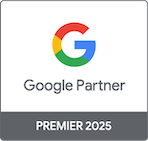
PPC campaign costs: How much should you budget for ads in 2025?
Abisola Tanzako | Apr 15, 2025

Table of Contents
- What is PPC, and why is it important?
- Why is a PPC campaign important for businesses?
- Key factors that affect PPC campaign costs and budgeting
- How to budget for a PPC campaign
- Ways to reduce PPC campaign costs and maximize ROI
- Is a PPC campaign worth the investment?
- Plan your PPC campaign budget wisely
- FAQs
Small businesses spend $500–$5,000/month on PPC, while enterprises invest $50,000+. One of the most effective strategies for businesses looking to increase sales, generate leads, and build brand awareness is pay-per-click (PPC) advertising.
But what is the actual cost of running a PPC campaign? The answer depends on several factors: campaign management techniques, bidding tactics, keyword costs, and industry competitiveness.
This article breaks down the costs of managing a PPC campaign, covering ad spend, management fees, pricing models, and cost-saving strategies.
What is PPC, and why is it important?
PPC is a digital advertising model where advertisers are charged a fee each time a user clicks on their ad.
It allows businesses to reach potential customers actively searching for their products or services by placing their ads at the top of search engine results.
Unlike organic search traffic (SEO), which takes time to build, PPC offers instant exposure and traffic.
Google Ads is the most widely used PPC platform, but businesses also utilize Facebook, Instagram, LinkedIn, TikTok, and Microsoft Ads (Bing Ads) to reach their target audience.
Why is a PPC campaign important for businesses?
Key benefits include:
- Instant results: PPC immediately drives traffic to your website, unlike SEO, which takes months to rank.
- Highly targeted audience: PPC allows fine-tuned targeting based on user behavior, geography, device, demographics, and keywords.
- Measurable ROI: Platforms provide detailed data on cost-per-acquisition (CPA), clicks, and conversions.
- Budget control: Businesses can set daily or monthly ad budgets to prevent overspending.
- Competitive advantage: PPC ads appear above organic search results and help businesses outbid competitors for high-value search terms.
Key factors that affect PPC campaign costs and budgeting
Ad expenditure is only one part of the overall cost of managing a PPC campaign. Several factors influence the total investment required:
1. Cost per click (CPC) and industry competition:
- CPC varies based on competition, industry, and keyword demand.
- Low-competition industries (e.g., local restaurants, clothing) have CPCs ranging from $0.50 to $2 per click.
- Highly competitive industries (e.g., law, finance, insurance) can have CPCs exceeding $50 per click.
2. Ad placement and bidding strategy: Advertisers use bidding systems on Google Ads and other PPC platforms to compete for ad positions. Factors influencing bid prices include:
- Ad rank and quality score: Higher Quality Scores lead to lower CPCs.
- Bidding strategy: Automated vs. manual bidding affects ad spend.
- Device and location targeting: Ads in affluent areas cost more.
3. Conversion rates and campaign objectives:
- If the goal is lead generation, the cost per lead (CPL) may be higher than that of brand awareness campaigns.
- Low conversion rates increase costs since more clicks are needed to achieve sales.
4. PPC management fees: Many businesses hire PPC experts or agencies to manage their campaigns. Common pricing structures include:
- Fixed monthly fees: $500–$5,000
- Percentage of ad spend: 10% to 30%
- Performance-based pricing: Fees per sale or lead
5. Additional PPC costs (Tools and Optimization): Essential tools and services add to PPC expenses, such as:
- Landing page design: $500–$2,500 per page
- Click fraud protection (e.g., ClickPatrol): $50–$300 per month
- PPC automation tools (e.g., Ahrefs, SpyFu, SEMrush): $99–$299 per month
How to budget for a PPC campaign
Effective budgeting considers CPC, conversion rates, industry competition, and business goals.
1. Determining your PPC budget
Budgeting varies by business size and objectives:
- Small businesses: $500–$5,000 per month
- Large corporations: $50,000+ per month in competitive industries
- Competitive industries (e.g., healthcare, legal, finance) require larger budgets due to high CPCs.
- Geographic targeting impacts cost advertising in major cities (e.g., New York, London), which is more expensive.
2. How to calculate your PPC budget
- Use this formula to estimate ad spend: Required Budget = Target Revenue ÷ Conversion Rate × CPC.
Example: If a company wants to generate $20,000 in revenue, has a CPC of $2, and a conversion rate of 5%:
- Leads required: $20,000 ÷ 5% (0.05) = 400 clicks
- Total budget: 400 clicks × $2 CPC = $800
3. Understanding CPC flexibility
CPC varies based on:
- Industry: E-commerce and hospitality ($1–$5 CPC) vs. legal, financial, and insurance ($50+ CPC).
- Keyword competition: High-demand keywords are more expensive.
- Quality score: Higher scores reduce CPCs.
4. Allocating your PPC budget effectively
- Ad Spend (60–80%): Most of the budget goes to platforms like Google Ads, Facebook Ads, and Bing Ads.
- PPC Management (10–20%): Agency fees or expert costs.
- Landing Page Optimization (5–10%): Enhancing conversion rates.
- Click Fraud Protection (5%): Prevents wasted ad spend.
5. Scaling your PPC budget
To grow your campaign successfully:
- Increase spending on high-performing ads.
- Optimize targeting and keywords.
- Run A/B tests on ad variations.
- Expand to additional platforms like LinkedIn or Bing Ads.
Ways to reduce PPC campaign costs and maximize ROI
Implementing innovative cost-saving techniques can lower your cost per click (CPC), improve ad efficiency, and maximize your return on investment (ROI).
Below are some of the most effective ways to optimize your PPC budget and get the most out of your ad spend.
- Improve your quality score: Google rewards ads with high-quality Scores by lowering CPC. Focus on relevant keywords, compelling ad copy, and optimized landing pages to improve user experience and performance.
- Use negative keywords: Negative keywords prevent your ads from showing for irrelevant searches, reducing wasted spend. For example, if you sell premium shoes, exclude searches like “cheap” or “free” to attract the right audience.
- Optimize landing pages: A well-optimized landing page boosts conversion rates and reduces cost per acquisition (CPA). To keep visitors engaged, ensure fast load times, clear CTAs, and a mobile-friendly design.
- Refine ad targeting: Avoid broad targeting and focus on high-intent users. Use demographic filters, geo-targeting, and device-specific bidding to reach the right audience efficiently.
- Adjust bidding strategies: Instead of manually setting bids, use automated bidding strategies like Maximize Conversions or Target CPA to get the best value for your budget.
- Run A/B tests: Test ad variations, headlines, descriptions, and visuals to find what resonates with your audience. Even small improvements can increase CTR and lower CPC over time.
Is a PPC campaign worth the investment?
PPC is highly cost-effective when managed correctly. Businesses often see $2 – $10 in revenue for every $1 spent.
However, PPC campaign costs can spiral out of control without proper budgeting, targeting, and optimization.
PPC provides immediate visibility and lead generation for businesses looking to grow quickly, making it a valuable investment when managed strategically.
Optimize your PPC budget today and get expert insights on maximizing ROI!
Plan your PPC campaign budget wisely
Managing a PPC campaign involves ad spend, management fees, tools, and optimization costs. The goals of the campaign, the competitors, and your industry all affect the overall budget.
To get the best results, businesses should:
- Set clear budget expectations and adjust based on performance.
- Continuously optimize ads and landing pages to increase conversions.
- Reduce CPC and increase ROI with data-driven tactics.
- Consider hiring a PPC expert to avoid costly mistakes.
Although PPC is an effective digital marketing technique, its success requires careful planning, constant optimization, and prudent budget control.
If businesses use the proper strategy, they can expand profitably and sustainably through PPC advertising.
FAQs
Q. 1 Is PPC superior to SEO?
PPC provides instant results, while SEO delivers long-term organic growth. For long-term success, a mix of both works best.
Q. 2 What occurs if I cease making PPC payments?
As soon as you stop sponsoring a PPC campaign, your advertising instantly disappears, and you stop receiving visitors from that channel. In contrast to SEO, PPC offers no sustained visibility unless you continue to pay.
Q. 3 What distinguishes PPC management fees from the PPC budget?
PPC budget is the money spent on ads (clicks, impressions, and conversions), while PPC management fees are the price of employing a PPC specialist, agency, or freelancer to manage your campaigns.





